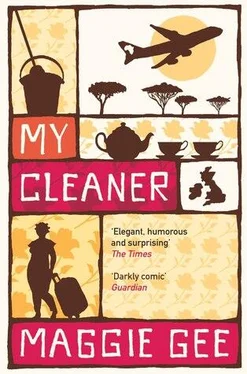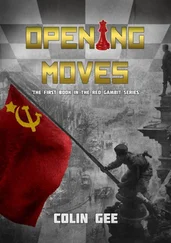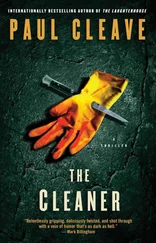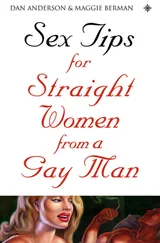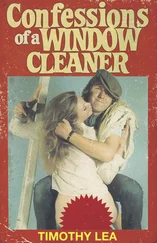“Yes, Henman,” it sounds as though Mary says. “We understand each other, yes, Henman.”
Mary goes to the sitting-room and opens the cupboards and starts to pull everything on to the carpet, bulging files, table mats, half-finished knitting. A box of old pens and broken pencils. A foot-high pile of old Christmas cards. A yellowing turret of ivory napkin rings. She doesn’t think, she just pulls it all out. In the end, almost the whole carpet is covered. She gives it a small but savage kick.
But as she does it, she can hear the Henman screaming. The Henman is trying to get Justin to help. Whatever his response, it is not enough. Her rage, her grief are beyond all bounds. “You are useless, useless, you’ve always been useless. Why are you such a hopeless son? You have disappointed me and your father. Get up, will you, do something!”
In the end, Mary can bear it no more. She leaves it as it is, the ruined sitting room, and goes upstairs to see what can be done, if anything can still be done to save Justin.
“Miss Henman, do not upset yourself. If he will not do it, I will do it. ”
“It’s quite extraordinary,” Vanessa says, in a voice that skates between laughter and tears. “All I’ve asked him to do is collect the photographs, the photographs of his own childhood, the photographs of our life as a family. It doesn’t seem a lot to ask. He has been dossing here for twenty-odd years. He has never given his mother a penny. He has never lifted a finger to help. Now I ask him to do one simple thing and he claims I am hysterical. I will get hysterical if you all want, I am ready to become hysterical—”
“Miss Henman, please, do not shout any more.”
“You are telling me not to shout at Justin. I am his mother. I care for him.”
“Yes, Miss Henman. You are his mother. Of course, Miss Henman, you care about him. But please, Miss Henman, no more shouting.”
And Mary helps her, and they get the work done, and the dustbin is left bulging with paper and celluloid, duplicate photographs, dusty drawings; Justin sleeps with his pillow over his head (and feels he has a right to: the day before, he and Trevor worked a thirteen-hour day, finishing a painting job for a deadline); and slowly Vanessa wears herself out, and the terrible storm in her brain subsides, leaving the beginnings of unease and guilt.
They do not go to bed until after midnight. “Goodnight, Mary. I know you have helped me.”
“Yes, I have helped you. Goodnight, Henman.” Curious how she still couldn’t manage the name. “Vanessa, please .” And Vanessa disappears, smiling an anxious, placating smile.
But Mary Tendo sits downstairs, brooding.
Vanessa Henman
Iam sitting in my study, too tired to write. I have just had another ghastly day. Sometimes it seems I am surrounded by fools. All day I have felt as if I was hung over, possibly because of yesterday’s argument. It wasn’t my fault, not entirely my fault, I was stressed from Paris, and Mary was — slow…
And yet, one doesn’t like to lose one’s temper. One doesn’t like to raise one’s voice. And Mary is well-meaning. In the end, she helped. I wouldn’t want to jeopardise the very real friendship we were starting to achieve when we went to the village.
Still, I’m sure by now she has forgotten all about it. One can’t be good-tempered all the time. Perhaps I will offer to cook, tomorrow. Though actually, I am too busy to cook.
And today at college was an utter waste of time. I sometimes wish I was teaching something real, nursing, astrophysics, not Creative Writing. I sometimes wish I had learned something real. I always felt superior to my father, and yet he knew real things, he was a farmer, he knew about the fields and the animals, he knew about machinery, like Tigger.
Is it possible that I have underestimated Tigger? He swears that Justin has ‘found his feet’. He says the boy has a wonderful eye, and might have a future as an interior designer, which sounds like a glorified painter and decorator—
But if Justin is happy. Really happy…
Maybe I have always got things wrong.
Derrick came to see me (it’s becoming a habit) and wanted to read his new story out, something he’d written in the reading week, and apparently it couldn’t wait till the class. I particularly wanted to be left alone, because now I am really getting going with my writing, and I do think the stuff about my father might be good. So much so that I’m going to take a risk and send the agent, rather naughtily, another extract by ‘Emily Self. (I think I’ll say she’s ‘quite promising’!) If there were no students, I could finish it by spring. But the young are selfish, and sap one’s energy. They think we only exist to serve them.
I’m afraid Derrick reads in a monotonous voice, stopping every so often to see if one likes it, cocking one of those thick black brows. (At first I found his hairiness appealing. Not any more, not any more.) Also, he does smell strongly of sweat. Perhaps he was nervous, I don’t know, but his manner was — over-confident. Maybe I have given him too much encouragement.
I had to be honest with him in the end and say I found the subject-matter difficult. It was about a red-headed woman who kept hens, and killed them by hacking through their necks with a knife. Very detailed, with too much blood. I said, “I’m not sure of her motivation,” and he said, “She hates birds, and, like, thinks she’s a fox. That’s why I made her a red-head, obviously.”
It wasn’t entirely obvious to me. “I’m not absolutely sure about the chicken motif.”
“You said you loved my metaphors. But you said I was writing too much about pigeons.”
“Well, yes. Perhaps I meant, birds generally.” (I was having to suppress my irritation. How much did he know about this subject? After all, we had a hen-house in our garden. And not a word of Derrick’s story is true.)
“Didn’t you dig the bit where the chicken goes on running and her head is like flying around on its own, like a balloon with the air rushing out, and the woman sucks up the blood from the knife? It’s a metaphor for oral sex, obviously.”
The metaphor had passed me by, thank God.
He looked hard at me, with a small smile. If they find one attractive, it’s because one is a teacher. I said, “I wasn’t entirely persuaded. Most women do not like raw hen’s blood.”
“See, I’m not writing for most women,” he muttered, staring at his knees.
“Surely you are not just writing for men?” It is bracing for the young to meet a feminist.
“No.” There was a pause, while he pulled at his neck as if he was trying to strangle himself. “Thing is, I am writing for you, Dr Henman.” And then he looked me right in the eyes. His eyelashes were thick, and black, but there was something odd about those hot dark eyes. “I have found your comments very inspiring. No one has encouraged me before. Everyone else always thought I was mad!”
There was a long silence. I could not think what to say. Now he was patting himself like a puppy. I wished I had been franker with him.
“It’s just so great that you appreciate me. I’ve never, you know, had that before. Thanks to you, I’m writing, like, all the time, obviously. I just can’t get enough of it. You know, I once showed some stuff to my psychiatrist. He told me it was better ‘not to fixate on it’. Don’t you think that’s amazingly funny? In fact, he suggested I take up football!” He hooted with mockery at this suggestion. “What kind of criticism is that?”
“You have a psychiatrist?”
“Obviously.”
I suggested he go away and write something different.
Читать дальше
